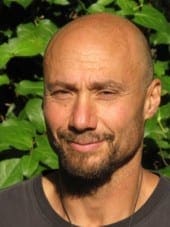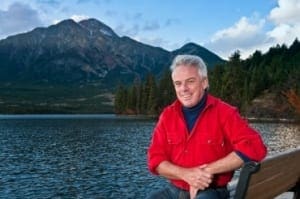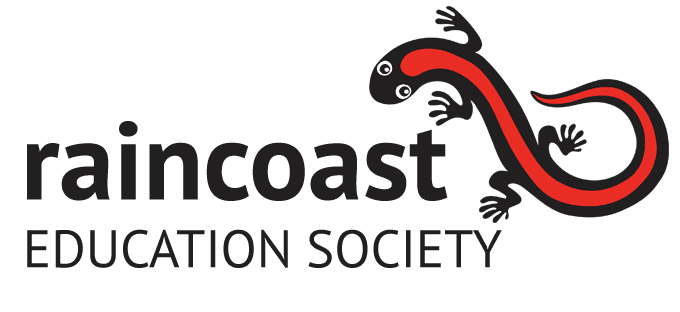2012 Raincoast Speaker Series

Dr Alejandro Frid
Many species of rockfish live a century or more, grow slowly, and do not start reproducing until their 20s. These ‘slow’ life history characteristics make them very vulnerable to overfishing. The largest, oldest females produce the most and highest quality young; leaving these ‘matriarchs’ in the water is essential to ensuring the persistence of rockfish populations. My presentation will be an ecological journey into why we must and how we can conserve rockfish, highlighting the importance of protected areas and new techniques for fishers to return live rockfish bycatch back into the deep.
Alejandro Frid is a conservation ecologist interested in how fisheries affect the structure and function of marine ecosystems. He received his PhD in biology from Simon Fraser University in 2006, and has been a research associate with the Prince William Sound Science Center and the Vancouver Aquarium. Many of his ideas began to take shape while conducting field studies of sea turtles under risk of tiger sharks in Western Australia and while developing computer models of the behaviour of harbour seals at risk from sharks and killer whales in Alaska. For the last five years his field studies have focused on lingcod, rockfish and other reef species in British Columbia.

Bob McDonald
The Earth is only one planet in a family of eight (poor Pluto) circling a fairly average star. Recent findings suggest that all the stars we see in our galaxy likely have planets, which means they are probably very common throughout the universe. Yet, in our great search of the skies, we have yet to come up with another Earth. Alien worlds are turning out to be bizarre places where humans could never visit, let alone live. When we do find an Earth-like planet, it will be very, very far away from us, unreachable by current technology. So we are stuck with the little planet we were born on for now. As planets go, the Earth is small, without much of an atmosphere, covered mostly by salt water and ice, with very little hospitable land. Yet, it is the only planet we know of that we can live on. This illustrated presentation will underline how precious and rare our planet is, a miracle that we are even here.
Bob McDonald is most widely known as the host of CBC Radio’s National Science Show: Quirks & Quarks. Bob is one of Canada’s best known science journalists, and has been presenting the program since 1992. Bob is also a regular science commentator on CBC News Network, and science correspondent for CBC TV’s The National. Bob has been awarded 6 honourary doctorates, and in November 2011, Bob was made an Officer to the Order of Canada.

Mel Galbraith
The Biogeography of New Zealand birds will focus on bird groups present in the New Zealand archipelago, and emphasise their ecological specialisation over millennia of isolation. Geographic isolation and the absence of terrestrial mammals can be considered as the main drivers of this ecological specialisation, often characterised by gigantism, melanism and flightlessness. The talk will also focus on the differences between continental and island bird species.
Mel Galbraith is a Senior Lecturer in in the Department of Natural Sciences at Unitec Institute of Technology, Auckland, New Zealand. Mel lectures in the Biodiversity Management major for the school’s Bachelor of Applied Science degree, specialising in biodiversity, ecology and biosecurity. He is active in the Ecological Society of New Zealand (President 2011-2013), Ornithological Society of New Zealand (Regional Representative, Auckland), the Supporters of Tiritiri Matangi (Biodiversity subcommittee), and a past member of the Auckland Conservation Board (1998-2004). Mel’s area of interest has always been natural history, especially ornithology and herpetology, which he formalised through post-graduate study at the University of Auckland.

Joe Gaydos
The Salish Sea is a 17,000 square kilometer inland sea shared by British Columbia and Washington State. Home to 37 mammal, 172 bird, 249 fish and well over 3,000 macroinvertebrate species, it is a hotbed of marine biodiversity. Like the Tofino region, it also is faced with challenges like development, marine shipping, climate change and ocean acidification. Joe Gaydos, Chief Scientist for the Sea Doc Society, will present an overview of the way cool creatures of the region and what is being done to restore the ecosystem.

Chris Darimont
The Great Bear Rainforest, on BC’s central and north coast, is blessed with one of the last strongholds of wild Pacific salmon on the planet. Each year, this predictable, safe, and nutritious resource becomes available to carnivores, like grizzly bears, black bears and wolves, who in turn make the remains available to most other life in salmon-bearing watersheds. Salmon also remains important to people. These fish in part spawned large and resilient societies of our coast’s indigenous people over millennia. More recently, salmon also support commerical and sports-fishing industries. In an era of dwindling runs and an uncertain future, how can this silvery wealth of the coast be shared among all these recipients? Chris Darimont will ask this question and bring to life the research of his group and his colleagues.
Chris Darimont is a professor in the Geography Department at UVic and directs science for the Raincoast Conservation Foundation (raincoast.org). He has worked in the Great Bear Rainforest and with its people since 1999. As an award-winning author, subject of several documentary films and educator, he takes great delight in speaking to, and with, people of our precious BC coast.

Ken Denman
Since the Industrial Revolution humans have added almost 1400 billion metric tonnes (a very large number) of carbon dioxide into the atmosphere, primarily from burning fossil fuels. The amount of this carbon dioxide remaining in the atmosphere has increasing the total concentration by over 1/3, from about 280 parts per million (ppm) to over 390 ppm. The increase in this and other greenhouse gases from human activities is changing the climate. Over 40% of this ‘new’ carbon dioxide has ended up in the ocean, causing the surface ocean to become more acidic. In response to changes in climate and in ocean acidification, marine ecosystems are changing in various ways. We will look at observed and expected changes in the ocean off the west coast of Canada and at potential impacts on local marine ecosystems.
Ken Denman is a Professor in the School of Earth and Ocean Sciences at the University of Victoria and Chief Scientist for the Victoria Experimental Network Under the Sea (VENUS) [venus.uvic.ca]. His main scientific interest is understanding how marine ecosystems will respond to climate change. He has been a Chapter Coordinator for the Second (1996) and Fourth (2007) Assessments of Climate Change by the Intergovernmental Panel on Climate Change (IPCC). He is an elected Fellow of the Royal Society of Canada.

Karla Robison
There still remains a high level of uncertainty on the quantity and movement of the Japanese tsunami debris following the March 2011 earthquake. Monitoring the approximately 1.5 million tons of floating material in the Pacific isn’t as easy task, as wind effects and ocean currents greatly disperse materials leaving satellite tracking ineffective. Based on forecasts, the bulk of the debris is anticipated to arrive in waters off Alaska to California in 2013, and expected to trickle in for several years. Karla Robison is leading efforts with federal, provincial, and local partners to collect data, assess the debris, and reduce possible impacts to our natural resources and coastal communities.
Karla Robison, Ucluelet’s Environmental and Emergency Services Manager, developed a local marine debris program to adaptively manage the tsunami debris situation as it evolves. This local initiative has been recognized as a program that can serve as a model for other local government planning. Robison is also able to share a local perspective with the Provincial/Federal Tsunami Debris Coordinating Committee (TDC) as she sits on the Tsunami Debris Planning, and Science and Monitoring teams.
Outside of her roles as an Environmental and Emergency Services Manager, Robison is an avid surfer, ocean enthusiast, and has a passion for protecting marine life and their ecosystems. She is currently preparing an expedition with a small team to stand up paddle across the the Strait of Georgia this summer in attempt to raise awareness and support for the preservation of the ocean from plastic pollution and other marine debris.

Brian Falconer
Brian Falconer is the Raincoast Conservation Foundation‘s Director of Marine Operations and a licensed maritime captain whose 35+ years navigating the B.C. and Alaskan coasts make him uniquely qualified to address and discuss the threats of oil tankers along the coast. Brian’s talk focused on the science behind his risk analysis of the proposed northern gateway pipeline, which addresses Enbridge’s claim that the chance of a major spill occurring on the coast from giant oil tankers would be “once in 15,000 years”.

Mark Hobson
Mark’s talk highlighted the fascinating journey that he and 50 other of his fellow artists took this past summer as part of the “Artists for an Oil-Free Coast” project in the Great Bear Rainforest. To purchase the book of this project, please follow this link. Mark’s presentation also featured a special screening of Reflections: Art for an Oil-Free Coast, by local film maker Cameron Dennison (Strongheart Productions).
Mark Hobson is a naturalist and painter from Tofino, BC. To learn more about Mark, please visit his website.
